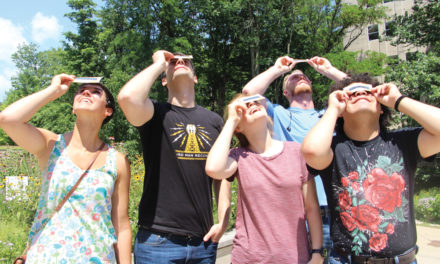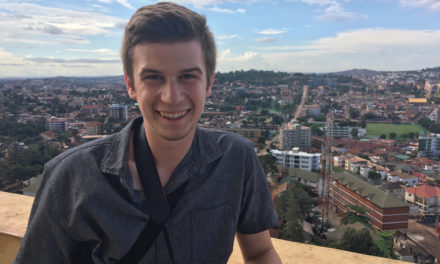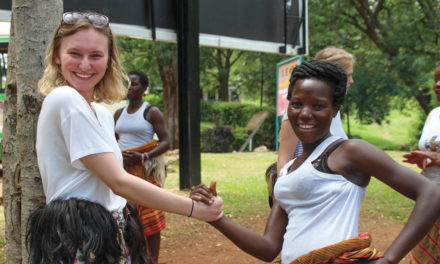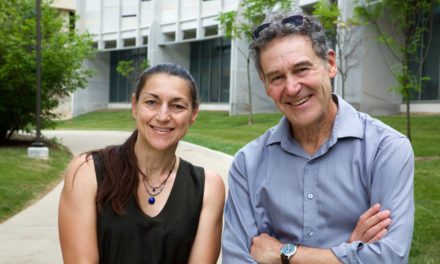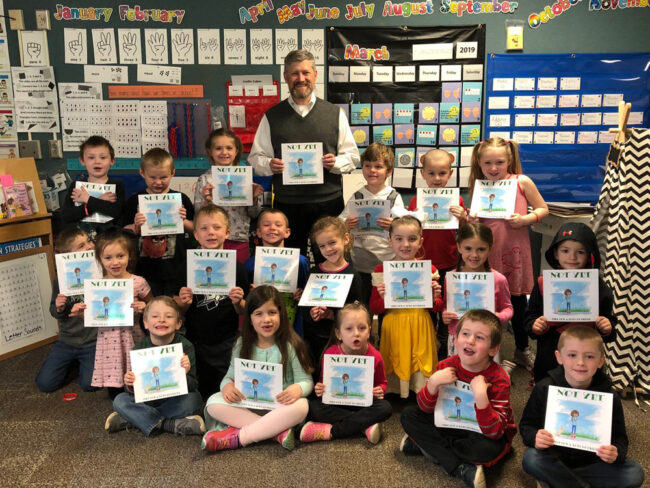
at Unionville Elementary School. Courtesy photo
by ROSIE PIGA PIZZO
Since it started six years ago, the Monroe County Community School Corporation’s (MCCSC) Real Men Read program has offered some 875 kindergarten students per year the chance to listen to a story read by a man from the community. Since it began, more than 4,400 students and 70 to 80 male mentors have had the chance to bond over books.
“It’s a refreshing role for [the volunteers] to be around the kids and the energy, and for them to see the social-emotional growth of these kids over the year,” says Cyrilla Helm, executive director of the Foundation of Monroe County Community Schools.
About 45 men participate each year, with 60% to 70% returning the following year. “It’s a variety of men who participate,” says Helm, who cites mentors from banking to the construction industry, as well as professors, lawyers, and retirees. Mentors read aloud to kindergarteners once a month for five months.
“Reading day is the favorite day of the month for me,” says Mark Franklin, German American Bank regional president and a four-year mentor. “I usually read on a Friday afternoon when everyone is excited for the weekend. No matter what is going on in my life, the energy of the class always motivates me to give more to these kids.”
Each kindergartener is given the book that was read that day. Selections change every year, but the MCCSC literacy team is sure to choose books that are fun to read, Helm says. The list includes both fiction and nonfiction.
For the 2019–20 school year, kindergarteners will receive: Frog on a Log?, Whistle for Willie, What Does It Mean to be Kind?, Pierre the Penguin: A True Story, and Pete the Cat’s Train Trip.
Since the program’s inception, 22,000 books have been purchased and distributed. In its first two years, a grant from Duke Energy covered program costs. Since then, Helm says, the Foundation has had no problem raising the annual $10,000 to $12,000 needed to sustain the program.


